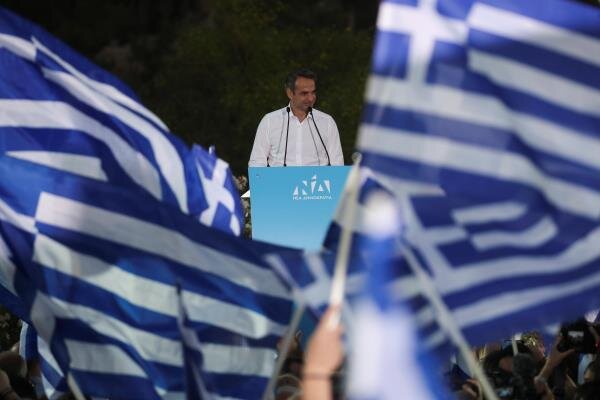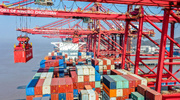As predicted, despite the adoption of austerity policies for 11 years, Greece is still one of the most austerity-stricken countries in the EU. Although Greece was supposed to emerge from the bailout by 2012, and step towards economic prosperity, heavy debts prevented the realization of this process. The European Union, the European Central Bank, and the International Monetary Fund loaned Greece a total of €289bn ($330bn) in three programs, in 2010, 2012 and 2015.
Meanwhile, Greek Prime Minister, Alexis Tspiras and other officials of the country, despite their party's anti-austerity approach, were not able to resist the pressure of countries like Germany and France. It's not without a reason that German Chancellor, Angela Merkl, has become a despised figure in Greece. The continuation of austerity policies in Greece raised the anger of Greek citizens on the one hand, and, on the other hand, it prevented the economic growth inside the country. An important point to be taken into consideration about the Greece crisis is whether this country is about to remain or exit from the Eurozone.
As Aljazeera reported, Greek Prime Minister Alexis Tsipras has conceded defeat in a general election to Kyriakos Mitsotakis after exit polls indicated a clear victory for center-right New Democracy (ND) party."The citizens have made their choice. We fully respect the popular vote," Tsipras said in his concession speech from central Athens, adding that he had phoned Mitsotakis to congratulate him."I want to assure the Greek people that ... we will protect the rights of working people with a responsible but dynamic opposition. I wish and hope that the return of New Democracy to government will not lead to vengeance ... particularly toward the significant achievements to protect the social majority and the workers."
The conservative ND party was projected to win 39.8 percent of the vote, according to a partial count presented by a Greek Interior Ministry spokesperson. That would translate into 154 of the Parliament's 300 seats, allowing the opposition party to move into government without the need to cooperate with others. Its parliamentary clout could still rise, depending on how many smaller parties clear the three-percent hurdle to sit in the Athens legislature. The early count puts Tsipras' leftist Syriza party on 31.5 percent."Greek women and men, everywhere in the country, everywhere in the world where Hellenism lives and prospers. Tonight the Greek people have spoken. And their verdict was clear, our society wants us to go forward in unity," said Mitsotakis later on Sunday.
"Everyone, with no one left behind. Most of all, it wants growth, jobs, and security for Greece to become strong again. Like we deserve. I would like to thank the Greek citizens for their trust. I will be a Prime Minister for all Greek people."
In the September 2015 election, Syriza won 149 seats and the ND 76. Sunday's vote shows the popular discontent with Tsipras after four years of austerity brought by reforms that he was forced to implement in return for an international bailout of the country. Greece sank into a deep financial crisis in 2010 and emerged from the bailout programs only last August. A broadly unpopular name agreement with neighboring North Macedonia, formerly known as Macedonia, further eroded Tsipras' support, despite it ending a diplomatic dispute spanning nearly three decades and earning him the co-nomination for the Nobel Peace Prize this year.
'Difficult to see where this is heading'
Mitsotakis, 51, campaigned on the promise of further reforms with a focus on better economic, administrative and social efficiency. He promised more jobs, fewer taxes and generally, as he said it, "a bigger cake to share".
Panos Polyzoidis, a political analyst in Athens, told Al Jazeera that an ND win could signify "a return to normality ... [and] possibly the end of the crisis, in political terms".
"That crisis has cost most political forces a lot in influence. New Democracy is one of the parties that survived. It also seems that Syriza is a party that came to the limelight because of the crisis and will probably also survive the post-crisis period," said Polyzoidis."It's very difficult to see where this is heading," he said. "The bailout programs have ended, but austerity has not ended," Polyzoidis added. "New Democracy has been promising growth-orientated policies, lowering taxes, lowering social security contributions. It all remains to be seen how feasible these are because the fiscal restrains remain."
According to official figures, 9,903,864 people, including nearly 520,000 first-time voters, were registered to cast ballots. Greeks living abroad were not allowed to vote.At this point, the Greeks are really hopeless about passing the economy crisis, and the stop of austerity policies at least in the near future. The truth is that there’s no perspective for Greece to pass the current crisis and upgrade its economy to the level it stood before 2010. But it looks like some Greek authorities are regarding the situation with unrealistic optimism, promising their citizens that this belt-strengthening period is soon to be over.
However, we can clearly see that Merkel’s plans for Greece was defeated, and the Greeks don’t see any reasons to comply with her plan. On the other hand, the Greek leaders couldn’t come forth with an overall solution in this regard, and their austerity policies are no longer accepted by society. This failure has been highlighted as the result of several factors, including the intensification of Euro crisis. It’s not without a reason that the experts are warning about the Greeks’ protests in 2019.
Far-right not weakened
The ultra-nationalist Golden Dawn party — which first entered the Hellenic parliament in 2010 — failed to secure the 3% of the national vote necessary to gain seats. In the last parliamentary election in September 2015, it had commandeered 18 seats. The party — which is still on trial for the murder of musician Pavlos Fyssas and migrant worker Sahzat Lukman and attacks on migrants — will, however, be represented at the Europan parliament as it secured two seats in May.
But the far-right populist party, Greek Solution, has made it into parliament with 3.7% of the vote. Its leader, Kyriakos Velopoulos, was one of the party's two members to be elected an MEP in May. Velopoulos, a televangelist, advocating for the death penalty and closed borders, drew ridicule online for marketing letters he said were written by Jesus Christ.
The reactions
EU chief Jean-Claude Juncker — whose term expires on November 1 — said in a letter to Mitsotakis that "one of the proudest achievements" of the Commission he presided over for the past five years "has been to help Greece turn the page of the crisis and create a future for itself."
He added: "I have full confidence in your personal capacity and in the capacity of the Greek people to open a new, brighter chapter in the history of your country."
Economic Affairs Commissioner Pierre Moscovici also congratulated Mitsotakis on Twitter and wished him luck in "pursuing the job of getting the Greek economy back on its feet."
He also thanked Tsipras, who he said, "has done a lot for his country and for Europe."
Greece's neighbour, Turkey, also congratulated Mitsotakis with Foreign Minister Mevlut Cavusoglu declaring himself "confident that Turkish-Greek friendship and bilateral relations will further strengthen during his (Mitsotakis) leadership."
The economic crisis continues in Europe
In 2007, when the economic crisis broke out in Europe, we saw that the protests primarily began in countries such as Greece and Spain. In other words, protests began to take place in weak and vulnerable countries in the Eurozone, and then it spread to other countries. However, at that time, countries such as France and Germany were not involved in the crisis and there were few protests. Today, we see that protests have begun in France, which is considered the second-largest economic power in the Eurozone and is one of the leaders of the European Union. But the rallies didn't stop in France and other countries were involved. Obviously, curbing these protests is far more difficult than in 2007, and the range of protests is also wider than that time. Even if the yellow vests rallies stop in France, the opposition of the French citizens towards the EU leaders will remain strong. This opposition will show itself in the European Parliamentary elections in 2019, or in national and local elections in the EU member states. In any case, the EU has faced the worst crisis over its popularity in its history, a crisis that the European authorities are incapable of solving.
MNA/TT


























Your Comment